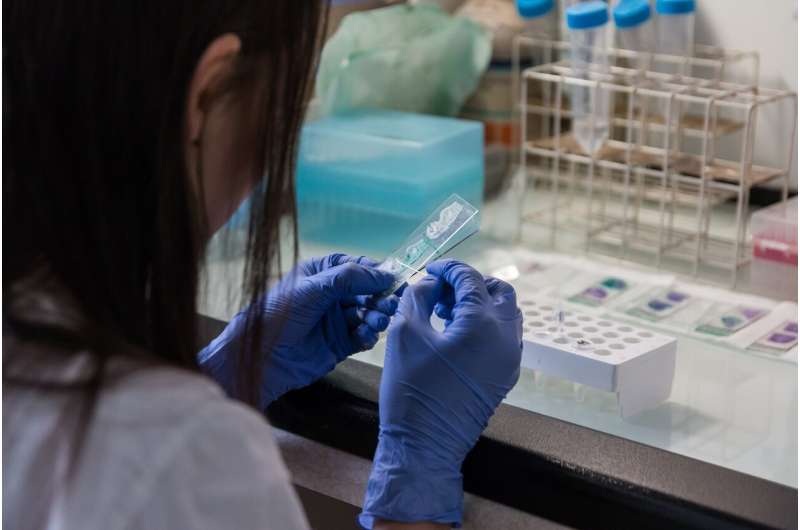Credit: Pixabay/CC0 Public Domain
In a new thesis from the Karolinska Institutet Department of Medical Epidemiology and Biostatistics, researcher Chen Wang has used nationwide Swedish register data to assess the long-term health of children conceived with assisted reproductive techniques (ART) and attempted to develop prediction models of pregnancy complications among women undergoing ART.
By linking data from multiple Swedish registers, Chen Wang was able to carry out prospectively recorded follow-up of sufficient length, while taking into account a wide range of parental background characteristics, with a low risk of selection bias.
Focusing on long term safety of children conceived with ART for which evidence was limited due to few or poorly performed studies, Chen investigated attention deficit hyperactivity disorder (ADHD) and school performance in Study I; depression, anxiety, antidepressant use, and suicidal behavior in Study II; and childhood asthma in Study III. A specific aim of these studies was to disentangle the potential role of the intervention from its indication, i.e., underlying infertility and associated parental background characteristics. In Study IV, he shifted focus from casual investigation of children's health to prediction of pregnancy complications in women undergoing ART, developing prediction models for preeclampsia, placental complications (accrete, previa, and abruption), and postpartum hemorrhage.
In this interview, he discusses his interest in this area of research.
What are the most important results in your thesis?
Most important are the overall reassuring findings with respect to long-term health of children conceived with ART, as we found no indication for concern with regard to school performance, risk of ADHD and psychiatric health. As a group, children conceived with ART had a higher risk of asthma in infancy and obsessive compulsive disorder in adolescence, but this was largely explained by parental background characteristics related to the underlying infertility. The only finding to warrant further investigation was a modestly elevated risk of asthma in the first year of life seen only in children born after frozen embryo transfer.
Why did you choose to study this particular area?
From my master studies I had an interest in register-based studies as well as epidemiological methods and my supervisor introduced me to this interesting and increasingly relevant area of research. The use of ART has resulted in over 10 million births in the past 45 years and was awarded the Nobel Prize in 2010. However, evaluations of long-term health are still relatively limited but increasingly important because the number of children conceived with ART that have reached adolescence and adulthood is growing.
What do you think should be done moving forward in this research area?
I think nationwide register-based studies are still the key to the assessment of long-term safety of ART because they offer complete population coverage of reliable information on ART use and different clinical endpoints. My work has illustrated the importance of accounting for the role of underlying parental characteristics when evaluating ART safety, which I hope future studies will heed. Clinical practice needs to be further informed around the comparative safety of increasingly implemented specific procedures, which to some extent could be subject to evaluation in randomized controlled trials.
More information: Chen Wang, Register-based studies of infertility and the use of assisted reproductive techniques : possibilities and challenges (2022) (Karolinska Institutet doctoral dissertation),
Provided by Karolinska Institutet
























